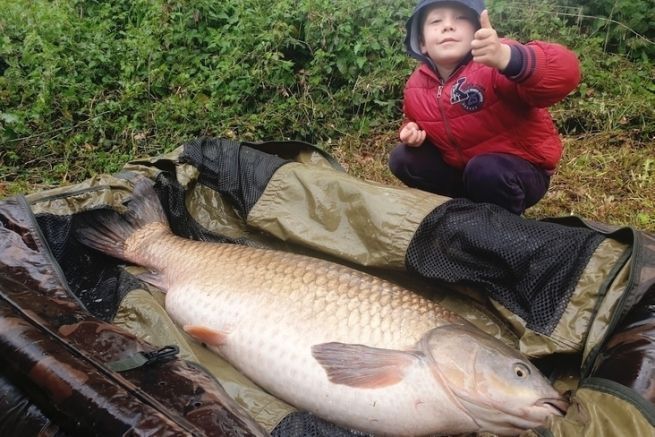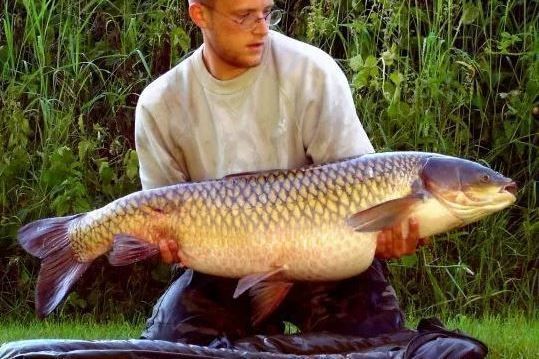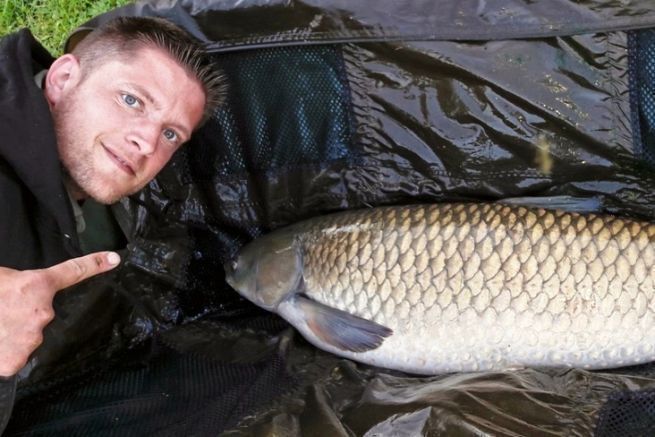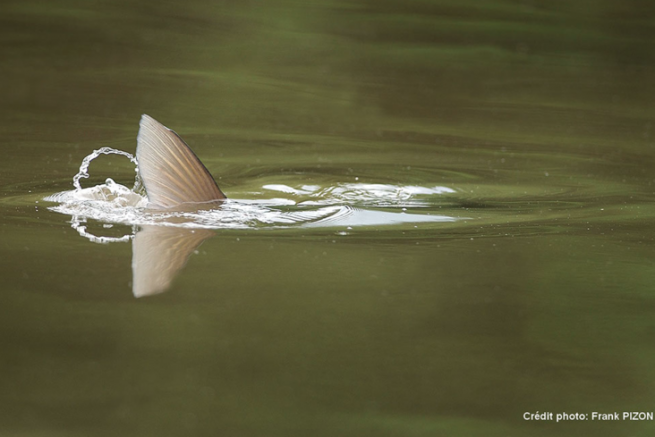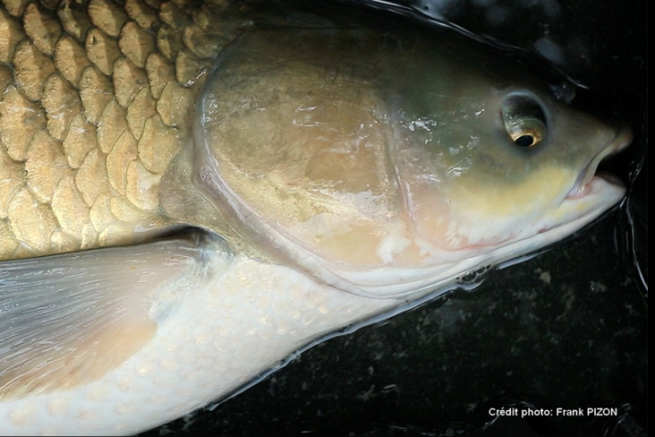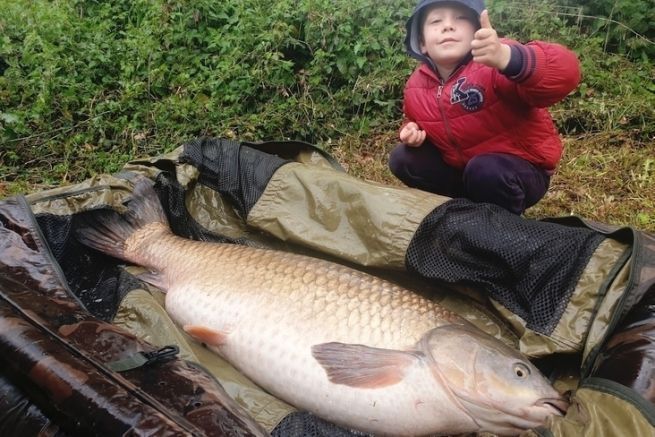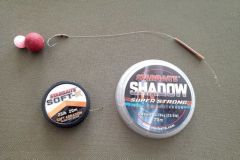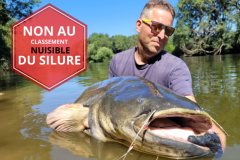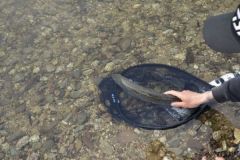In a previous article, I outlined the most important points in caring for carp from the time they are fished out until they are released. Grass carp is a fragile fish in many respects. You need to take into account its behavior and particular characteristics to avoid making mistakes that could prove fatal.
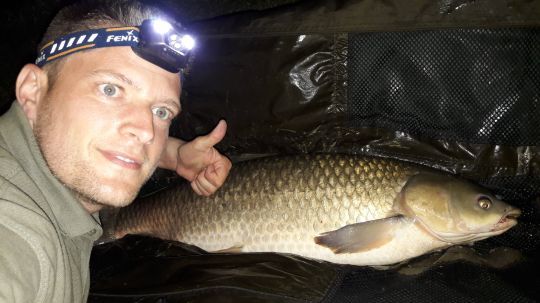
Delicate handling
Even if it's tougher than you think, grass carpets need to be pampered. You really shouldn't skimp on your choice of receiving mat. Some subjects reach 1m20! Cradles are perfect! In fact, on a conventional mat, tail wagging could expel him, resulting in serious injury.
Similarly, models like the Cam Concept Carp Hammock really cushion tail strikes, which often lead to scale loss (a recurring problem). You also need to be very careful when holding it in your arms, because even with the Cradle underneath, you have to do your best to prevent it from falling.
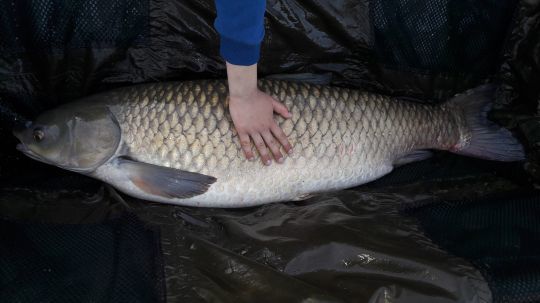
All in all, the process of immortalizing such a sweetheart should be as short as possible, and carried out in the best possible conditions to minimize stress (risk of heart attack).
Avoiding catastrophe
A conservation bag should only be used in cases of force majeure, and then only for a few seconds (floating bag only).
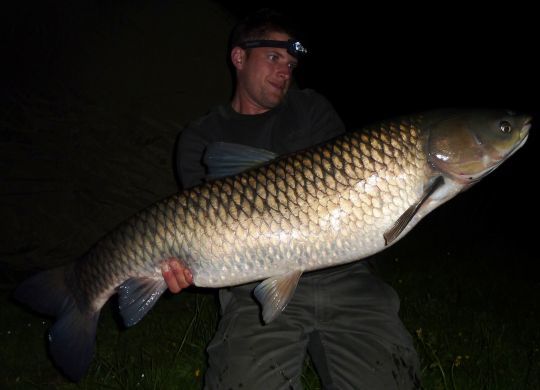
This is a very important point. Even more so than for carp, in-water handling is highly recommended. These crucial points are to be correlated with intensive wetting at every stage of its handling out of the water.
A tricky landing net
Netting is also important, because even in the meshes, it will not admit defeat - on the contrary. On the contrary, it will always try to jump out of the net, even when the net is in its grip. Your landing mat should therefore be very close to the place where you have exhausted the fish, so as to bring it to safety as quickly as possible.
In addition, a floating bag like the Cam Concept Monster Weight Sling is essential for proper handling. Also, as with carp, you need to pay close attention to the position of the fins when lifting and placing on the mat.
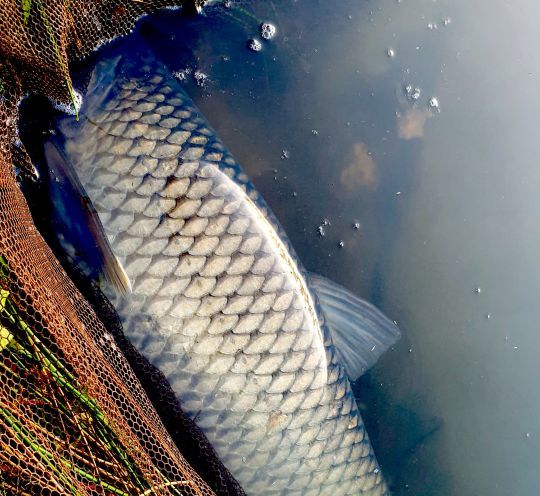
The stall
When unhooking, the action of removing the hook must be sure and dry. There's no need to jerk from right to left, as this would damage the cartilaginous mouth. A pair of pliers can be invaluable in securing the hook. All this, of course, once the line has been released.
Sometimes a wound can bleed profusely, again a characteristic of love. In this case, irrigate thoroughly and disinfect the wound.
Essential re-oxygenation
Re-oxygenation must be taken seriously (sometimes for many minutes), otherwise it will flank itself to regain its strength, after having left on a whim (yet another one!). Contrary to popular belief, grass carp have the same resistance to low oxygen levels as our favorite cyprin. So don't panic, take care of it and all will be well!
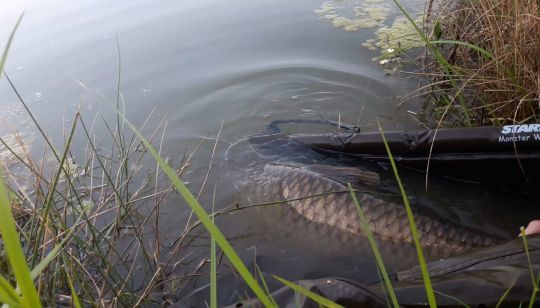
Love in danger
As I write these few lines of kindness, I'm still thinking about the messages from certain departmental federations on social networks indicating that grass carp is a harmful species on their territory. And that's all there is to it!
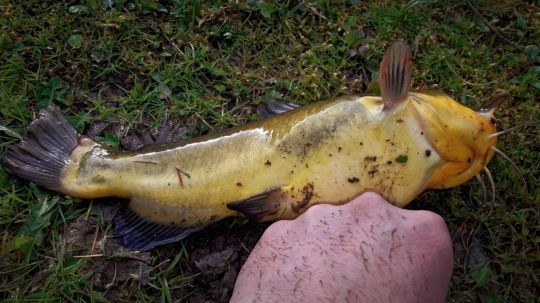
Don't these institutions have any other priorities than to go after a species that doesn't reproduce in French waters and is therefore easy to regulate in the event of excessive introduction? Finally, as far as I'm concerned, I'll always take great care to return it to the water. I get too much pleasure out of fishing it and sharing it with the next generation, wherever they may be.
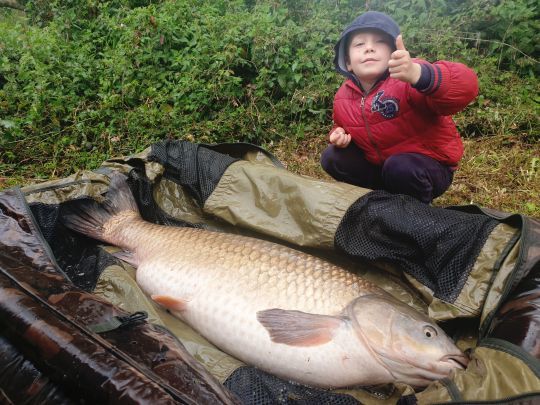

 /
/ 